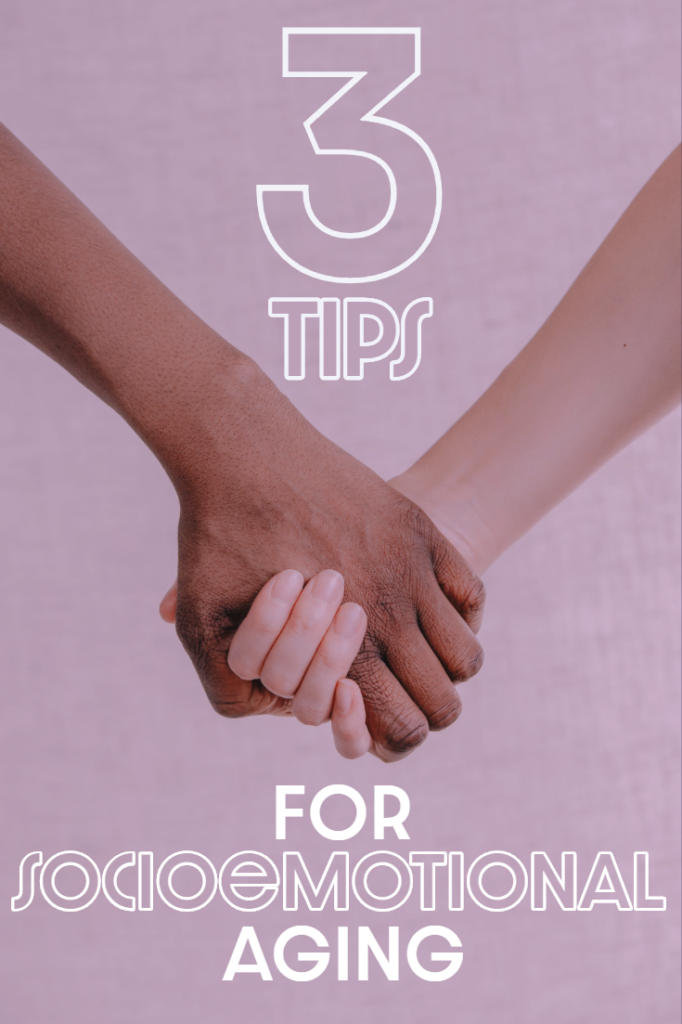Story by Gloria Luong, assistant professor and director of Health, Emotion, and Aging Research Team in the Department of Human Development and Family Studies.
The upside to aging is that, in general, our social and emotional lives become more meaningful and enriched.
Older adults (60+ years old) often report being happier and more satisfied with their lives compared to younger adults in their 20s and 30s. They also report being more content with their social partners than do younger adults. Why? Follow the tips below to see what healthy older adults are doing to attain fulfilling social and emotional lives.
Don’t sweat the small stuff
Imagine that a friend has just made an insensitive remark that hurt your feelings. What would you do? You could confront your friend and express your opinions or ignore the comment and walk away (among other things). It turns out that as we age, we change our strategies for dealing with interpersonal conflicts, and these strategies, in turn, are related to better well-being (e.g., Luong & Charles, 2014; Birditt, Polenick, Luong, Charles, & Fingerman, 2019). Younger adults typically opt for the former strategy to confront social partners, which has emotional and physiological costs. Older adults, in contrast, tend to de-escalate or avoid conflict, and that strategy appears to be beneficial for their emotional well-being (Charles & Luong, 2013). Take a lesson from those who have lived through those experiences and don’t sweat the small stuff wherever it makes sense to do so.
It’s okay to get mad (or sad)
When we are constantly bombarded with images of our friends and family having a great time on Instagram and Facebook, it may be easy to assume that everyone is always happy and that we should always be happy. It may even make us feel like there is something wrong with us when we sometimes get mad or sad. These “negative emotions,” however, are completely normal. People who are better able to recognize the value in these negative emotional experiences (that they can sometimes be cathartic, helpful, or even appropriate in certain situations) are less likely to show detrimental health and well-being when they do experience negative emotions (Luong, Wrzus, Wagner, & Riediger, 2016). The next time you are feeling down, don’t get further upset at yourself by thinking that you should be feeling happier. Instead, try to understand why you are feeling that way and what you can do to change those circumstances.
It should be noted, however, that if your negative emotions are overwhelming you and disrupting your ability to function in daily life (e.g., difficulty getting out of bed, following normal work routines), it may be advisable to seek support from a professional. For more information and access to professional resources, please visit: https://health.colostate.edu/mental-emotional-health/.
Count your blessings
Although physical and cognitive abilities tend to decline across adulthood, social and emotional well-being remain stable or may even improve as we age (Carstensen, 2006). Scientists have discovered that this “aging paradox” may be partly explained by the fact that as we age and realize we do not have as much time left to live, we are less likely to take things for granted. Meaningful social and emotional experiences are sought out and savored, and we become more grateful for the things we do have. Studies show that when you count your blessings and look for things to be grateful for in your daily life, this practice can lead to better well-being (e.g., Killen & Macaskill, 2015).
Gloria Luong is an assistant professor and director of the Health, Emotion and Aging Research Team housed in the Department of Human Development and Family Studies. Her research focuses on socioemotional development and health across adulthood and in later life.